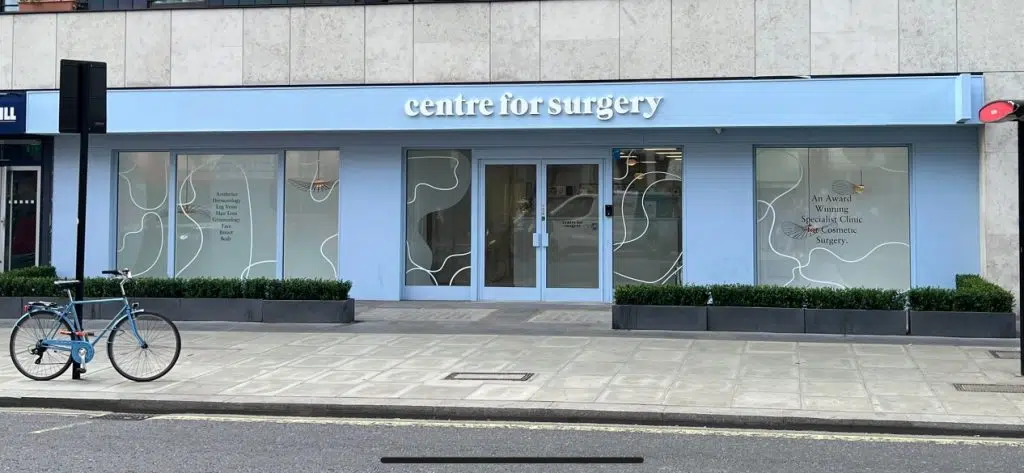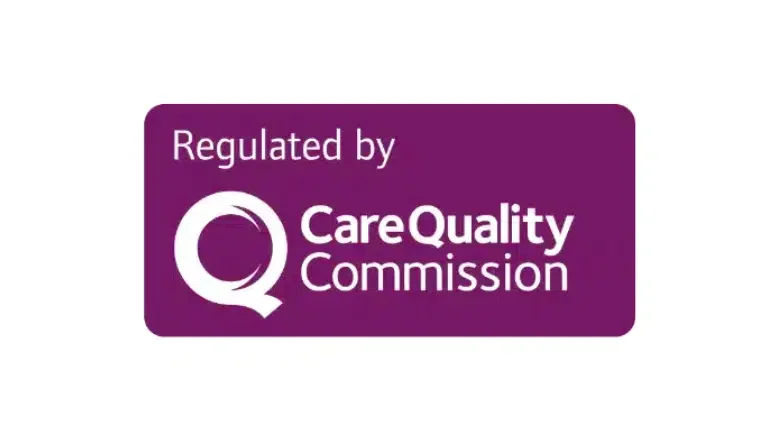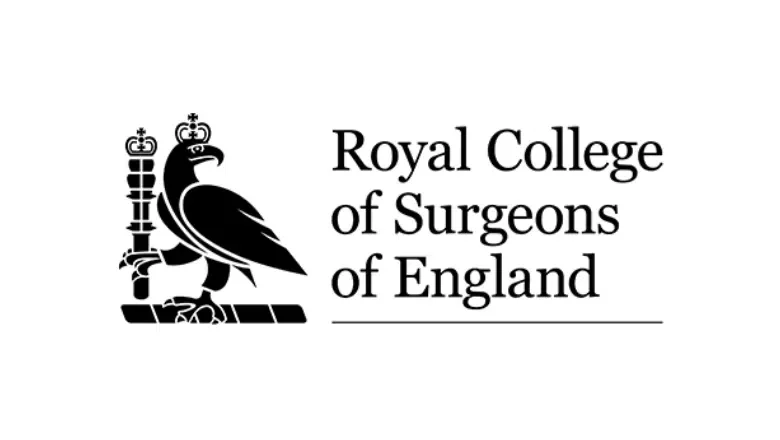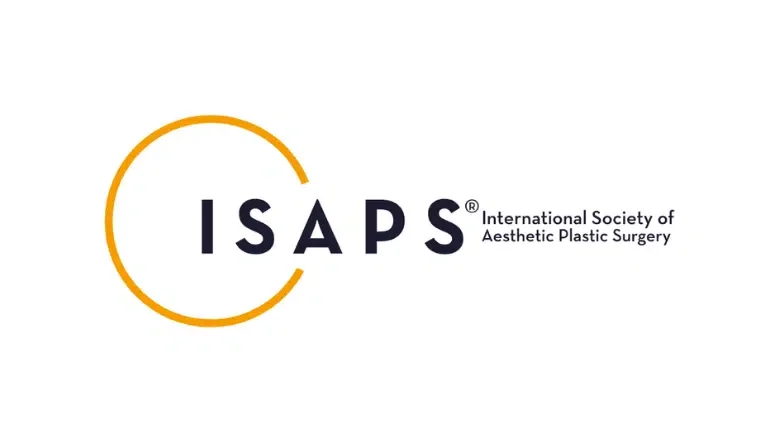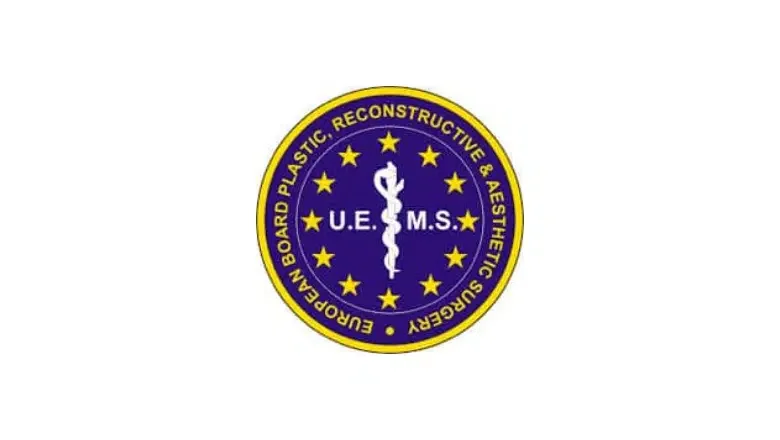Facelift surgery can produce truly life-changing results for comprehensive facial rejuvenation. A facelift and neck lift is considered the gold standard treatment for getting rid of jowls and tightening the neck. Facelift surgery is a significant undertaking. Achieving the best facelift results requires close collaboration with your surgeon and adherence to postoperative care instructions to ensure a smooth recovery after facelift surgery. The final results will be well worth it, with the vast majority of patients telling us they wish they had the procedure much earlier.
RELATED: Is a Facelift Worth It?
How to get the best recovery after facelift surgery
Facelift surgery preparation
The most critical step for reducing complications after facelift surgery is to stop smoking at least four weeks before and after surgery. Smoking affects wound healing, which may increase the risk of developing poor results or excessive facelift scarring when the incisions have failed to heal correctly. Alcohol should also be avoided as it can affect the ability of the blood to clot effectively and could increase bleeding during surgery. Alcohol can also affect wound healing. Certain dietary supplements, including herbal supplements, should be avoided, along with medications that thin the blood, such as aspirin and non-steroidal anti-inflammatory drugs. Before your procedure, prepare the room where you will recover to make it as comfortable as possible and ensure that you have all the necessary provisions in place, including shopping for essentials. This is because you will be tired for the first few days after facelift surgery. You should also arrange to have someone collect you from the clinic once your procedure is complete and take you home via car or taxi. Public transport is not acceptable.
RELATED: How to Prepare For Facelift Surgery
After facelift surgery
You should ensure you have a responsible adult to help look after you for the first 24 hours after the procedure. You should get plenty of rest during the first 24 hours. It is best to avoid tops that require being placed over your head. Button-up or zip tops are more comfortable to put on and remove. This helps to minimise any discomfort to the surgical area with clothing going over your head. Facelift surgery takes between two and four hours. Your surgeon will advise you on the procedure’s rough duration so that your adult escort can plan to arrive at the facility promptly. General anaesthesia will be administered for a facelift, and your anaesthetist will continuously monitor you throughout the procedure.
Specialised dressings will be applied to the facelift incisions and will be removed the following day at your nurse-led follow-up appointment.
Facelift postoperative instructions
Getting plenty of rest is key to achieving a good recovery after facelift surgery. Eat plenty of fruit and vegetables with lean protein, nuts and seeds to help with healing. You may experience slight constipation after surgery, and this is where incorporating fruit and vegetables, combined with increased fluid intake, can be beneficial. You must avoid taking aspirin or any medicines containing aspirin for ten days after surgery. Smoking should be avoided for at least four weeks after surgery to minimise the risk of complications. Alcohol should also be avoided for at least two weeks as it can increase fluid retention and exacerbate facelift swelling. You must wear the specialised facelift garment continuously for a minimum of 14 days. After two weeks, you may wear the garment during the day only for an extra two weeks, and it can be removed if you plan to go out in public.
How long does it take to recover after facelift surgery?
The time taken to recover after having a facelift will be determined by several factors, including:
- Your overall state of health
- The type of surgical facelift you have had
- How closely do you follow your surgeon’s postoperative instructions
Recovery after facelift surgery can be improved by avoiding smoking, eating a healthy diet and following the postoperative after-care instructions in full.
RELATED: Are facelift results permanent?
How to speed up facelift recovery
Sleeping propped up on a couple of pillows can help achieve a smooth recovery after a facelift. This will speed up the disappearance of swelling. You should also keep hydrated by drinking plenty of water and eating lean protein. It is important to keep the dressings dry, and incisions should be protected from direct sunlight to reduce the risk of excessive facelift scarring. Your surgeon may prescribe a postoperative antibiotic ointment, which should be taken as directed.
Top tips for recovery after a facelift
Keep track of your levels of activity
It is best to keep mobile after the procedure, as this helps promote blood circulation and minimises the risk of deep vein thrombosis. You should avoid driving for at least 14 days after the procedure and refrain from strenuous activity, including going to the gym or sexual activity, for a minimum of six weeks. You may feel tired during the first week after facelift surgery, so it’s essential to listen to your body and avoid overexertion. Certain types of desk-based work can be restarted after a week or two but be sure to consult with your surgeon first.
Take time out for plenty of rest
You should avoid lifting heavy items and try to avoid bending over too much, as this may exacerbate swelling and increase the risk of post-operative bleeding. Cold packs can be applied to the surgery site during the first three days. This will help reduce bruising and swelling; however, avoid applying cold packs for more than 15 minutes at a time. You should avoid looking after young children or pets during the first week after surgery to prevent the risk of bumps and knocks to the surgical site. Facelift swelling can be reduced by sleeping with your head propped up on a couple of pillows for the first two weeks after surgery. You should try to avoid sleeping on your side or front as this can irritate the incisions and increase the risk of wound breakdown. A reclining chair may be useful for the first week after surgery to minimise the risk of inadvertent turning while sleeping. The compression garment should be worn continuously for the first two weeks to help the tissues tighten around your new facial contours. Excessive sun exposure should be avoided to minimise the risk of excessive scarring. Suppose you have combined a facelift with laser resurfacing. In that case, it is essential to keep the face moist by regularly applying petroleum jelly over the area that has been lasered for at least one week after surgery.
Take painkillers to manage pain after facelift surgery
If you experience mild pain or discomfort, paracetamol is a highly effective painkiller. Your surgeon does not usually advise non-steroidal anti-inflammatory drugs such as ibuprofen due to the risk of increased bruising and bleeding after surgery.
RELATED: Facelift Surgery FAQs – Q&A about Rhytidectomy
What to expect during the recovery period after a facelift
You can expect to experience mild soreness during the first few days after surgery, which should subside by the end of the first week. After a facelift, Bruising and swelling can take two to six weeks to resolve fully. It is normal to experience tightness in the facial skin, which may feel tender during the first week. It is important to wear the facelift compression garment as instructed to support the healing areas. It is normal for the skin to feel rough and dry for 2 to 3 months after surgery. Applying a regular moisturiser once the incisions have healed will help to treat this. Facelift swelling during the first few weeks may distort the facial features, although this typically resolves completely by eight weeks after surgery. Facelift surgery in men may result in repositioning the facial hair-bearing skin, which may also require men to shave behind the ears.
Will I have bruising and swelling after a facelift?
After a facelift, Bruising and swelling are expected to last at least 2 to 4 weeks. Wearing polo necks can help to conceal a significant amount of swelling and bruising. Most patients feel confident about going out in public after the third week. The final results of a facelift take time to develop, with an average time of between 3 to 6 months.
When will I have my postoperative check-up?
You will be reviewed by a member of our post-operative nursing team 24 hours after the procedure to remove the dressings and review your incision sites. Drains used after a facelift will be removed at this appointment. Permanent stitches are usually removed between 5 to 7 days after surgery.
What symptoms should I tell my surgeon about?
- Side effects related to medication use, such as nausea, vomiting, headache or rash
- Purulent discharge from the incisions with a green or yellow colour and associated smell.
- Localised swelling or bleeding from the incisions could be a haematoma.
- You have a temperature over 38° and feel generally unwell.
- Increased bruising or swelling with significant pain and discomfort.
- Increased redness along the incision and spreading into the surrounding tissues.
Your surgeon will provide you with detailed instructions on all the symptoms to look out for in your postoperative care pack.
Recovery after facelift FAQs
What are the different types of facelifts?
There are several different types of facelift surgery and the most appropriate type will be recommended once you have had an in-person consultation with an expert facelift surgeon in London:
Does a facelift hurt?
It is normal to feel a mild level of pain or discomfort for the first couple of days after surgery, although any pain or discomfort can be easily controlled with over-the-counter painkillers such as paracetamol.
When can I wash my hair after a facelift?
You can have a shower and wash your hair approximately 48 hours after surgery. You should use a mild, non-irritating shampoo and dry your hair with a blow dryer on a cool setting. Avoid using a towel to dry your hair to minimise the risk of irritating the incisions.
How long will it take for the swelling from a facelift to subside?
It is normal for the face to appear swollen and bruised for at least two weeks after surgery. Bruising will subside more quickly, with swelling typically disappearing within 5 to 6 weeks after surgery. As detailed in the postoperative guide, you can take several actions to minimise the risk of facelift swelling.
Will my face be numb after a facelift?
Numbness is a common symptom after a facelift and may take 2 to 3 months to improve as part of the healing process following the procedure. Numbness can be reduced by following your surgeon’s post-operative instructions, as it is often related to facelift swelling.
How long do facelift scars take to heal?
It takes between three and six months for facelift incisions to heal fully. Initially, the scars may appear red and raised above the level of the surrounding skin before transitioning to a faint white line after six months. After 18 months, there will be minimal change in how facelift scars look. Silicone gel can help improve the appearance of the facelift scar once the incisions have fully healed.
How long should I avoid talking after a facelift?
Facelift surgery can impair facial movements, and it is best to avoid excessive facial expressions for at least one week to allow the incision to heal without problems.
When can I expect to see the final results after facelift surgery?
Facelift swelling can take between 3 and 6 months to disappear, and it is important to remain patient during this period. The final results of facelift surgery are typically seen 3 to 4 months after the procedure.
How long does a facelift last?
The results of facelift surgery can last more than ten years before the natural ageing process leads to the development of saggy or loose skin. Several factors can affect the duration of surgery results, including the type of facelift you had, lifestyle factors such as excessive smoking, genetics and your age. Patients who have extensive signs of facial ageing before undergoing their first facelift may require a second procedure sooner than those with moderate signs of ageing.
How long should the facelift compression garment be worn for?
It is essential to wear the compression bandage continuously for a minimum of two weeks after a facelift. After two weeks, the garment can be worn during the day for an additional two weeks and can be removed if you plan to go out in public.
What is the best age to have a facelift?
Facelift surgery is ideal for individuals aged 40 and over, when signs of facial ageing begin to become noticeable. Characteristic features of ageing affecting the face include the formation of deeper lines, wrinkles, loose skin, and jowls. These signs of facial ageing can be effectively corrected with a facelift when non-invasive procedures have proven ineffective.
RELATED: What is the best age for a facelift?
When can I sleep on my side or front after a facelift?
It is essential to sleep on your back in an elevated position for at least one week after surgery. You should avoid sleeping on your side for at least two weeks to minimise irritation of skin incisions, which could lead to wound breakdown and excessive scarring.
What are the best foods to eat after a facelift?
Eating the right foods after a facelift is crucial for ensuring a quick and healthy recovery. Lean protein sources, such as chicken, fish, and eggs, will help you feel fuller for longer. They should be combined with plenty of green, leafy vegetables rich in vitamin K. Fresh fruit contains many nutrients beneficial for recovery. Whole-grain foods, such as brown bread and rice, are healthier than processed white bread or white rice. You should avoid highly processed foods, deep-fried foods, and foods high in salt and sugar. Eating a salty diet can exacerbate fluid retention, potentially prolonging facelift swelling. You should also keep well hydrated to help flush toxins from the body.
When can I expect to see the results of a facelift surgery?
The vast majority of patients who have a facelift can start to see the early results of their procedure six weeks after surgery. Final results are evident between three and four months after surgery.
Facelift surgery at Centre for Surgery
Centre for Surgery is the leading cosmetic surgery clinic in London and is home to some of the best facelift surgeons in the UK. Our state-of-the-art Baker Street clinic in Marylebone is one of the most advanced facilities in the UK, situated in the heart of central London. Contact us today at 020 7993 4849 or complete the form below to schedule a consultation with an expert plastic surgeon for a facelift.

